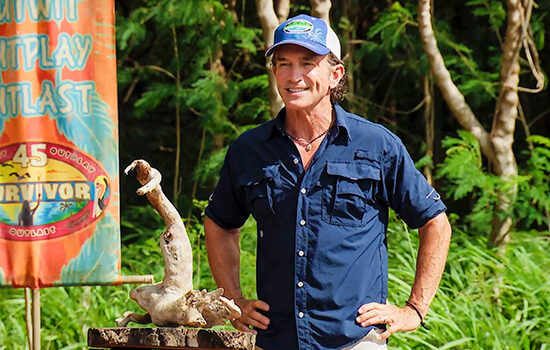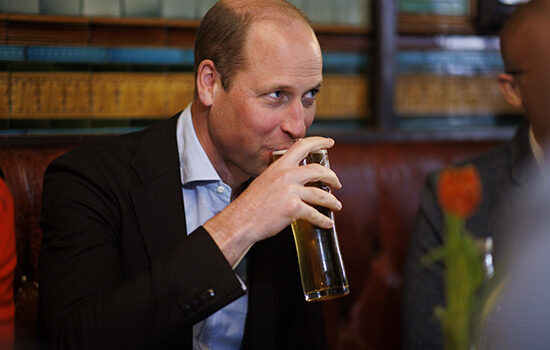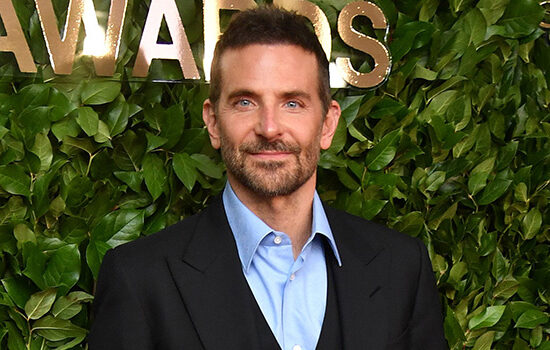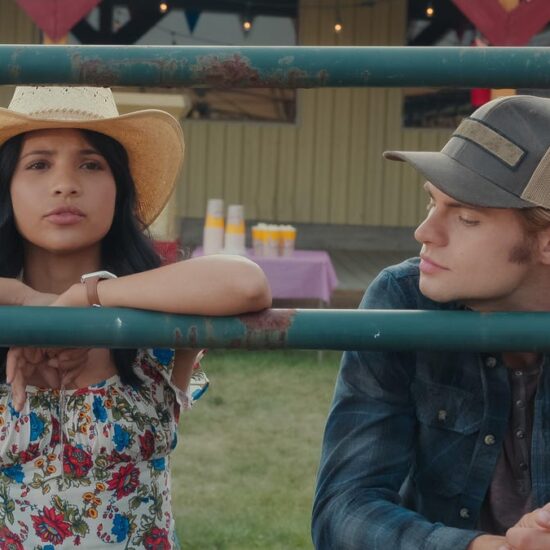
“That’s what I’m all about–on my bio, everywhere–it says ‘recovery advocate’,” Blue October frontman Justin Furstenfeld tells me, adding, “It’s my responsibility to share my experience of strength and hope about recovery.”
May 10, 2022 marked one full decade of sobriety for the singer/songwriter/producer/actor, whose recovery journey was poignantly recorded in 2020’s Get Back Up, a documentary made with the specific intention of inspiring others.
“I wanted kids in rehab to see for once that somebody lived,” he says, hoping it could counter other well-known stories of tragedy and loss to addiction in the music industry. “I was so sick of seeing all my favorite people go, that I wanted to say, ‘Man, well, how cool would it be if you could capture six years of sobriety on tape and then give it back to rehabs and tell them to show kids.’ I was able to give it to Cumberland Heights, which is the place in Nashville that got me sober, and now they show it there and that’s all I wanted to do.”
In 2015, three years after getting sober, he set out to write a song that captured not only his addiction experience, but also the effect it had on his family. The song, “We Know Where You Go,” carries a deeply personal message, inspired by what it was like for Justin’s loved ones to try and find him when he was using.
“It was a song basically written for my brother saying to me, ‘Look, we know where you go, we’re watching you close,’” Justin explains. “It’s a beautiful song and I wanted to just shine the light for the people that are using and in active addiction, that the people that love you know and care about you. They see everything you’re doing and they see you beating yourself up every day. They just love you and they want you to get better and they want you to get help.”
The video for “We Know Where You Go,” created by Justin and Manny Fresco, opens with Justin in a sepia-drenched motel room, cigarette in hand. He leans his head against the window to dazedly peer at the cars whizzing by, desolation looming. Though filmed several years ago, he’s held back on releasing it—until today. Justin describes the video for “We Know Where You Go” as a “recovery video.” “It’s a song about getting sober, but it’s a very dark video,” he says. The video portrays Justin walking late-night streets in shadow and isolation, long-time friend and Blue October bandmate Ryan Delahoussaye appears throughout, having tracked him down.
“I made this video for $200. I rented a seedy hotel room in Albuquerque, New Mexico and used only natural light, and recorded it in the hotel room and it’s probably one of my favorite videos I’ve ever made, just because it was so dark and so beautiful and the colors are so gorgeous. One of my favorite things I’ve ever done,” he tells me. They started the shoot at 1:00 a.m. after securing the $25-a-night room. “We went there and [the motel clerk] goes, ‘I don’t like it. You guys are coming in here with a camera. People coming here with cameras all the time and make stuff.’ I’m like, ‘We’re not making one of those kinds of movies. This is a video for recovery.’
“It really captures the loneliness and the solitude, and the isolation that drug addiction can bring.”
From Kurt Cobain to Jean-Michel Basquiat, Blind Melon’s Shannon Hoon and Jimi Hendrix, so many of Justin’s idols growing up lost their lives to addiction. “I thought I was going to get out of rehab and I would start smoking weed again, drinking a little bit of wine, and just hopefully not do hard drugs anymore, because I thought that’s what artists did,” he explains. “There’s a lot of people that have showed me, that have inspired me, and made me the good human that I am today. When I started doing drugs, I was like 14. I got sober at age 36. That’s a long time doing drugs. When you get sober, you literally went back to being a 14-year-old because that’s when you started. That’s when you shut off reality and learning from how people grow.”
Now, he keeps a regular work schedule, and invests in meaningful moments with friends and family.
“I go to work every day at 10:00 I leave at 6:00, except for when I have my kids then I spend it with them. When I’m with them, we paint, we create, we sing, we go for walks, we talk about life. We talk about the trees and how elves live in there. We’re always creative, it’s a beautiful thing. I’ve actually become a producer, an engineer, more prolific writing with other people. I can sit down and go, ‘Okay, I’m going to write a song about this today and I can start it and I can finish it.’”
Above all else, he protects the peace in his life, and acknowledges the importance of prayer. “Prayer is probably the most important thing because you have to have a higher power in order to stay sober. You can’t just do it yourself, because doing it yourself got you in trouble in the first place. You have to believe in something bigger than yourself. It doesn’t have to be God. I like to tell people in meetings, newcomers, the first time you stepped into the ocean, and you felt the ocean on your feet, or when you saw a sunset or something real and pure. Or for fathers who come in that just can’t get a hold of it, like the first time you held your child when they were born, that moment, that is a higher power.”
By “walking the walk” Justin shows others that recovery is possible. “I remember seeing a couple of dudes in my home group that were just so cool,” he recalls, of his early days attending Alcoholics Anonymous meetings. “They had tattoos all over them, and I was so strung out. I would go there and be like, ‘He hasn’t shot up heroin in 18 months, and look at how cool he is. Oh, my God, I want to smoke a cigarette with him after the meeting.’ He was almost like meeting a rock star. Whenever there’s a newcomer, we always focus on that newcomer and we talk straight to that newcomer and we show him or her that it’s possible. That it’s just seriously one day at a time, and that you have many tools that you can use to stay sober. It literally can be one minute at a time, one hour at a time, but never more than one day at a time.
“You can just show them by walking the walk, the promises of recovery and the promises are some of the most beautiful things.
“When you get 90 days you’re like, ‘Holy shit, I’ve lost a little weight and getting a little color back.’ Then you get six months and you’re like, ‘Oh, you see my cheekbones? Oh, my arms have muscles and I’m waking up.’ Then you get nine months and you feel like the sun hits your face and you feel that glow like when you were a kid.”
He describes getting the chills as he talks about it. “You’re like, ‘Oh, that’s what love feels like. I forgot all about that.’ You see your mom again and she’s proud of you and she tells you how good you look, and you land that job and you keep it. You pay your rent and you make your bed and you come home and you feel accomplished.”
He says the world slowly opens up to you again. “By one day at a time, you collect all these days and you become proud of yourself and you start liking who you see in the mirror. Then you go, ‘Oh, that’s what this recovery is.’
“Then you’re, ‘now, what do I want to do with my life?’ It goes from there. You’re like, ‘Ah, ah…it’s crazy how beautiful life can get.’”
Justin will make his feature-film acting debut this summer opposite Mickey Rourke and Dolph Lundgren in ‘Section Eight.’ Blue October will be on tour this summer supporting the Goo-Goo Dolls and headlining a North American tour this fall, we well as releasing new albums in October and March 2023.














